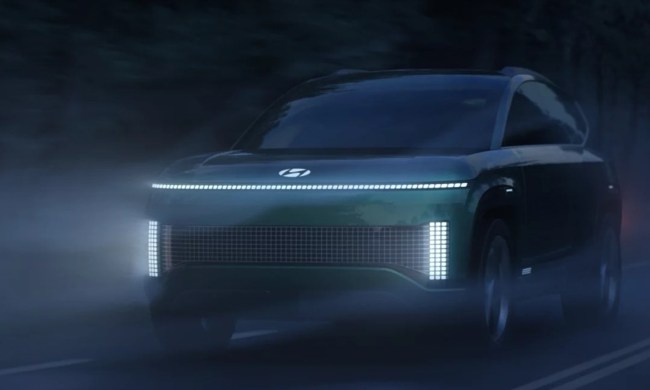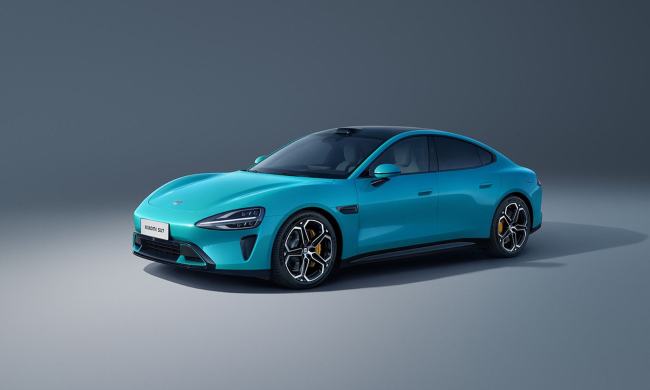Hyundai plans to release several electric cars in the coming years, including an American-made three-row SUV, but it’s also investing in other technologies for buyers who aren’t ready to go electric. One is an extended-range system that promises over 550 miles of driving range.
Announced as part of the brand’s mid- to long-term strategy, the Extended-Range Electric Vehicle (EREV) will use an innovative drivetrain that relies on a gasoline-burning engine to quell range anxiety. The engine won’t directly drive the wheels; it will act as a generator that makes electricity and sends it to the motors that zap the wheels into motion, likely via a small battery pack. This technology isn’t new, as the Chevrolet Volt used a similar layout. Hyundai hasn’t released full technical details yet, but it notes that its EREVs will be all-wheel-drive. Compared to an EV, the EREVs will benefit from quicker recharging times, a lower price, and more than 550 miles of driving range.
EVs remain in the pipeline. One is the production version of the Seven concept (pictured) launched at the 2021 Los Angeles Auto Show. Called Ioniq 9, it’s expected to feature markedly less futuristic styling than the concept, but it will retain electric power and a three-row interior with space for seven. It’s not too far-fetched to assume that the SUV will be closely related to the Kia EV9 under the sheet metal.
More hybrids are on the way as well. While full details remain under wraps, Hyundai noted that it plans to roll out hybrid versions of small, large, and luxury vehicles in a bid to double the number of gasoline-electric models in its portfolio. Genesis, which Hyundai spun off into a standalone brand aimed at competing with Mercedes-Benz and Lexus, will make hybrid technology available across its entire range (excluding its EVs).
The first cars equipped with Hyundai’s next-generation hybrid system will land in showrooms in January 2025. The new, Android-based infotainment system the brand is working on is expected to arrive in the first half of 2026, and the EREV-powered Hyundai and Genesis SUVs will enter production in North America by the end of 2026. Looking further ahead, a new type of EV battery designed for volume models will be available by 2030. Hyundai expects that gradual advancements in energy density will deliver a 20% improvement in performance.



